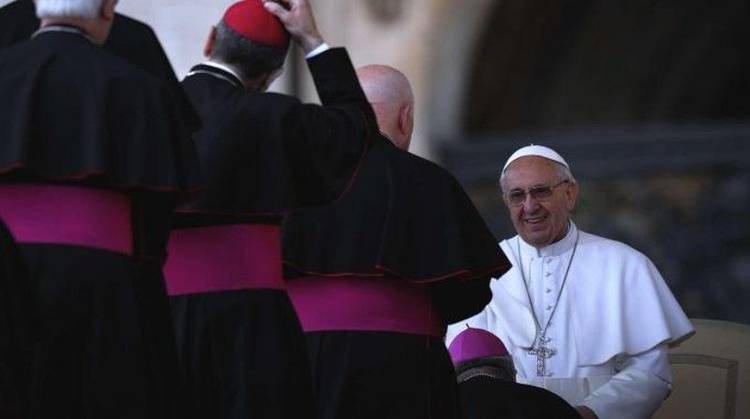


VERSIONE ITALIANA >>>
[2]
Twelve months since becoming Pope, Cardinal Bergoglio has declared a referendum on the Church and the religious world. Shrewd observers, Catholic and lay alike, have sounded the battle cry of revolution. Yet the risk is that the noise will drown out the message and fail to reform the ecclesiastical order in a meaningful way. If that’s the outcome, the risk could transform Francis’ papacy into the biggest sideshow the Catholic Church has ever seen.
This is not a criticism of the Pope, but rather of the Church’s hierarchy, which, despite the rhetoric, still seems unprepared to engage the revolution being called for. After all, the Church was incapable of making all the changes laid out by the Second Vatican Council, a much more important event than the election of a new pope. While those watching the Vatican are happy to fill newspapers with the new Word of Francis, they forget that if the Church finally enacted the four constitutions set forth by the Council, the Pope would be obsolete. That might please Francis himself.
The Pope deserves credit for airing his criticisms of the Church. He has answered the prayers of people who would like to see their institution run by the Holy Mother rather than a wicked stepmother, an institution composed of men and women currently marginalized from ecclesiastical life. Clearly he has made headway for homosexuals and divorcees.
Yet although his words have given people hope, there are other issues that could force the Church to reflect deeply and seriously about its mission in the world, issues which Pope Francis has raised with less gusto, such as the methods for electing archbishops, the balance of power between local churches and the universal church, the role of laymen in governing the church, celibacy, admitting women into ministries of the church, and the governance of dioceses.
These issues have been declared too technical to be dealt with by anyone but internal experts. And yet these are the issues, alongside those broached by the Council, that would constitute a major overhaul of the system, and they have been slyly buried by a hierarchy that, under the guise of defending tradition, has favored its own power over the public good.
Can Francis dismantle the opposition? Will his words breach the decaying walls of power? It will be interesting to see what he does next. Many expect next October’s Holy Synod will be a decisive event. Personally, I don’t think so. There will certainly be changes regarding marriage and talk of respecting sexual orientation, and that in itself will be a big step.
Nevertheless, only a new Council can grant Francis the ability to ensure global reform and fulfill the proposals of the Second Vatican Council. He needs the support of the entire Church, not just the battle cries of the crowds in Saint Peter’s or the outcry of the media.
* Gennaro Matino teaches Theology and History of Christianity in Naples, where he runs the parish of SS. Trinità. He has written several books and essays, and collaborates extensively with both traditional and new media.
Source URL: http://newsite.iitaly.org/magazine/focus/op-eds/article/can-francis-dismantle-opposition
Links
[1] http://newsite.iitaly.org/files/papafrancescocardinali1400466646jpg
[2] http://www.i-italy.org/node/38049